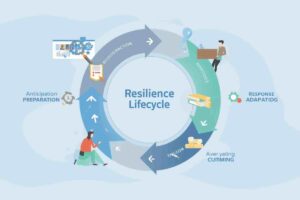The field of biomedical engineering is evolving fast in Canada. Professionals who combine technical expertise with management skills are in high demand. Naera F biomedical engineer Canada, exemplifies this trend. With a master’s in engineering management, she demonstrates how scientific knowledge and strategic thinking can shape modern healthcare technology.
Her story highlights the unique blend of engineering precision, regulatory awareness, and leadership ability required in today’s medtech and biotech sectors.
Understanding Biomedical Engineering and Its Impact
Biomedical engineering applies engineering principles to solve healthcare challenges. From wearable health monitors to implantable devices, it focuses on improving patient outcomes while driving technological innovation.
In Canada, biomedical engineers are increasingly contributing to research and development, clinical implementation, and healthcare system optimization. Many users report that combining technical knowledge with management expertise allows professionals to lead projects more efficiently, especially in hospital or startup environments.
The Role of Engineering Management in Biomedical Fields
Engineering management is not the same as an MBA. It focuses on project planning, systems thinking, resource allocation, and strategic decision-making. For biomedical engineers, this skill set bridges the gap between developing medical devices and ensuring they are delivered successfully to market.
Naera F in Canada demonstrates how mastering both engineering and management creates a unique professional profile. She can guide teams, align complex projects with budgets and timelines, and navigate regulatory requirements—all while maintaining scientific rigor.
Core Skills That Define Naera F’s Edge
Several key abilities make Naera F a standout biomedical engineer in Canada:
- Systems Thinking: She evaluates the entire medical ecosystem, considering patients, devices, suppliers, and compliance requirements.
- Cross-Functional Leadership: She communicates effectively with engineers, researchers, marketers, and legal teams.
- Regulatory Knowledge: Familiarity with FDA, ISO, and Canadian regulatory standards ensures projects meet all legal and quality requirements.
- Data-Driven Decisions: Using data and testing results, she ensures strategies are precise, reliable, and scalable.
These skills are vital for professionals aiming to lead high-impact healthcare projects.
Career Paths for Biomedical Engineers with Management Skills in Canada
Combining biomedical engineering expertise with management skills opens multiple career opportunities:
- R&D Project Manager in Medical Devices
Managing teams to design and implement innovative medical technologies. - Clinical Innovation Strategist
Integrating new devices or technologies into hospital workflows to improve patient outcomes. - Product Manager in Biotech Startups
Leading product development, from conception to commercialization. - Regulatory and Quality Systems Leader
Ensuring products comply with Canadian and international healthcare standards.
Many Canadian professionals report that this hybrid skill set significantly accelerates career growth, especially in fast-moving medtech sectors.
Why Canada is a Growing Hub for Biomedical Innovation
Canada offers a supportive environment for biomedical engineers. The country has thriving biotech clusters in Toronto, Vancouver, and Montreal, with hospitals and research centers encouraging innovation.
Government grants, research funding, and collaborative opportunities with startups make it an attractive destination. Professionals like Naera F can leverage this ecosystem to lead projects that have real-world impact while advancing their careers.
Practical Steps to Succeed as a Biomedical Engineer in Canada
Aspiring biomedical engineers can follow practical steps to achieve success similar to Naera F:
- Gain Management Skills: Pursue a master’s in engineering management or relevant certifications.
- Understand Regulations: Familiarize yourself with Health Canada regulations and international standards.
- Build Cross-Functional Experience: Work with teams from different backgrounds, including research, product design, and marketing.
- Focus on Data and Innovation: Rely on testing, analytics, and iterative development for project success.
Many users report that following this approach helps them transition smoothly into leadership roles in medtech and biotech.
Lessons from Naera F’s Professional Approach
- Start With Purpose: Focus on solving real-world healthcare problems, not just developing technology.
- Lead Proactively: Take initiative in projects, even before holding formal managerial titles.
- Maintain Technical Fluency: Stay connected with engineering work while managing teams and budgets.
- Adapt to Change: Embrace AI, automation, and digital health trends to stay competitive.
This mindset helps professionals become indispensable in Canadian biomedical sectors and beyond.
Key Takeaways
- Hybrid Expertise Matters: Combining biomedical engineering and management skills creates a highly sought-after professional profile.
- Leadership Is Essential: Beyond technical skills, effective communication and regulatory knowledge set leaders apart.
- Canada Offers Opportunities: Thriving biotech hubs and supportive regulations make Canada ideal for career growth.
- Practical Skills Pay Off: Systems thinking, cross-functional leadership, and data-driven decision-making are critical.
- Replicable Success: Naera F’s journey provides a roadmap for aspiring biomedical engineers seeking impact and career acceleration.
Frequently Asked Questions (FAQs)
What does a biomedical engineer with management skills do in Canada?
They oversee projects that develop and implement medical devices or technologies. By combining technical knowledge with management expertise, they ensure projects meet budgets, timelines, and regulatory standards, while leading cross-functional teams in research, clinical, and commercial environments.
How can I become a biomedical engineer in Canada?
A reliable method is to complete a bachelor’s degree in biomedical engineering or a related field, followed by practical experience or internships. Many professionals also pursue a master’s in engineering management to enhance leadership skills and career prospects.
What industries employ biomedical engineers with management expertise?
Many users report opportunities in hospitals, research centers, medical device startups, biotech companies, and regulatory organizations. These roles often involve project management, clinical integration, product development, and compliance oversight.
Are there certifications needed for biomedical engineers in Canada?
Yes. While a degree is essential, additional certifications in project management, quality systems, or regulatory compliance can increase employability. Familiarity with Health Canada, ISO, and FDA standards is highly valuable.
What skills make a biomedical engineer successful in Canada?
Core skills include systems thinking, cross-functional communication, regulatory knowledge, data-driven decision-making, and strategic leadership. Professionals who combine technical expertise with management skills can drive innovation and achieve leadership roles more quickly.





